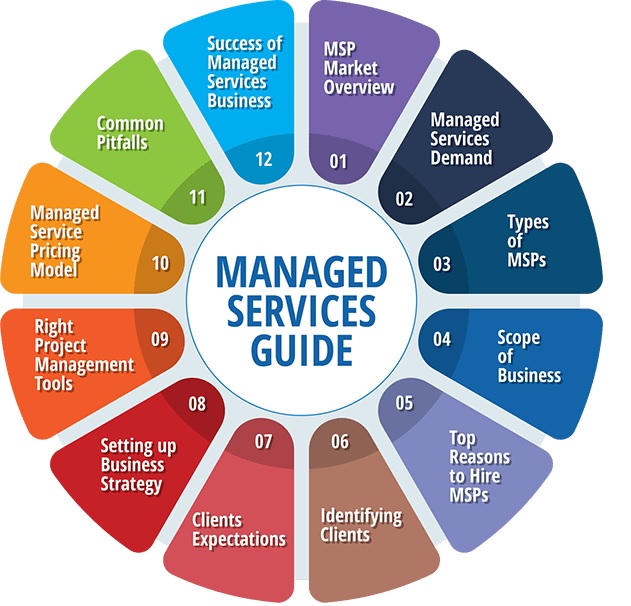Managed IT services designed for business
Businesses that do not serve the IT industry only utilize the IT function to assist business operations that in turn help achieve the business objective.
There is no doubt that the availability of an IT infrastructure streamlines business processes and enhances employee productivity and efficiency.
But it is always a matter of concern for management to decide as to how much of the resources they need to divert towards the upkeep of a support function.
All growing businesses have some kind of connectivity to the internet
Indeed some businesses only employ a handful of individuals to maintain online activity and small amounts of data stored on file servers on-site.
Other larger corporations may value response times to customers and clients while ensuring online presence is never compromised.
They may conduct significant portions of their business on the internet and store large amounts of data that need to retrieved frequently.
Downtime may be a rare occurrence and even unacceptable.
These corporations may prefer to have large IT infrastructures that ensure smooth operations which in turn secures the revenues generated online
It is thus critical to find the proper balance between the allocation of resources and the expected returns from them.
Outsourcing the IT function to IT professionals
With the growth of cloud computing and business productivity linked with the same.
Businesses have begun to realize that the risks associated with an expansive IT infrastructure can minimize or controlled by outsourcing to managed services hosting.
Benefits of IT help hired externally

While in house IT employees need to be continuously trained and rehired with changing technology and growing needs.
Managed services can engage only when there is a need to execute a particular task
Managed to host and IT service providers undertake the responsibility to execute the service for which they hired.
And held accountable against a predetermined SLA (Service Level Agreement).
Employees of an internal IT infrastructure (such as hardware and maintenance) often account for the idlest time, waiting for a job to assign.
This is not the case with managed services hosting providers where additional services can acquire on a pay-as-you-go basis.
While more frequent services are available for monthly and yearly subscriptions
Managed services are capable to equip businesses with a compatible framework that automates and self regulates the IT requirements.
There are yet more advantages that can take by the use of managed services, but what exactly are the services that are available for businesses?
Managed IT services for businesses
Technical support available on-demand and on-call support service.
Updates and upgrades of software and hardware used by a business.
Network security framework services.
This includes various activities like monitoring network activities and risk assessment.
The goal is to secure the IT environment of the business.
Network administrative services offer synchronization of systems that are within the network.
Establishing new connections to the network and allowing mobile access if required.
Cloud migration, integration, and hosting services.
There is an ever-growing list of managed IT services that can deploy within corporations.
And the benefits of these are also multiple but not limited to those listed.
But it is certain that a centralized network that is managed by dedicated professionals is the trend being set by the biggest brands in the world.





